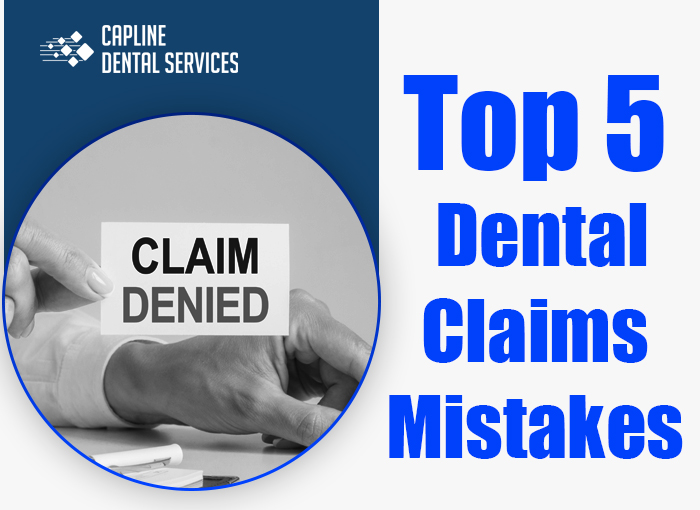
Every dental clinic prioritizes excellent patient care. However, even minor mistakes in dental claims can delay claim payments, decrease treatment acceptance, and result in unnecessary denials, impacting revenue. Submitting dental claims without errors is challenging but essential for maintaining a consistent cash flow.
If you're struggling with getting paid on the first submission, this article will highlight the top dental claims mistakes to help you avoid these issues.
Incorrect Coverage Information:
Patients often find it challenging to understand the nuances of their coverage and limitations, especially as insurers frequently revise and modify policies. Even dental professionals sometimes seek expert opinions. As a result, patients might end up with a hefty bill due to an incorrect breakdown.
It's vital to confirm procedures in advance. This is especially important for out-of-network dental practitioners, as preauthorization is often required. Only a few insurance companies allow retroactive preauthorization, making it challenging to obtain payment if a mistake occurs.
Dental Claims with Coding Errors:
Proper CDT coding is essential for insurance plans. Common errors like using wrong or expired codes can lead to claim issues. Upcoding, a fraudulent practice where more severe procedures or diagnosis codes are used, is another concern. Inexperienced dental billing staff might inadvertently use incorrect codes.
By employing experienced billers or third-party services like Capline Dental Services, such errors can be minimized. These professionals can accurately interpret notes and determine the correct diagnostic code for each procedure.
The transition from ICD-9 to ICD-10 diagnosis codes brought significant changes to the dental industry. Professionals must be familiar with the coding set relevant to the service date. Given the vast number of diagnosis codes available, errors can easily occur during dental claim submissions.
Dental Claims Submission with Insufficient Documentation:
For accurate reimbursement, claims must be accompanied by supporting documentation, including narrative clauses, charts, and initial patient treatment acceptance. Different insurance carriers have varying rules, so it's essential to provide detailed information. Generalizing procedures can lead to insufficient evidence, increasing the chances of claim rejection.
Ensure you cross-check details like patient information, treatment plans, procedure codes, intraoral photos, x-rays, NPI, procedure dates, and individual fee schedules. While practice management software can automate much of this, manually reviewing each claim can prevent errors. Consider enlisting third-party assistance, such as Capline Dental Services, to reduce claim rejections.
Not Submitting Dental Claims on Time:
Timely submission of dental insurance claims is crucial to prevent accounts receivables from accumulating. While it might seem easy to delay claim submissions, missing even one or two claims within the claim window can lead to complications. Claims submitted outside the limited window, often just a few days post-treatment, can be denied. To ensure efficient processing, it's best to submit claims promptly.
Dental Claims with Incorrect Data Entry:
While ensuring a pleasant patient experience is vital, it's equally important to avoid data entry errors, which can have significant consequences. Given the extensive data entry required for insurance claims, overlooking details like a patient's birth date or insurance number is possible.
Double-checking all data for accuracy and employing a dedicated biller can help prevent these common claim errors. The administrative team often juggles multiple responsibilities, and if they're tasked with handling claims, errors are more likely to occur.
In conclusion, while dental claims can be intricate, avoiding common mistakes can streamline the process and ensure timely payments.